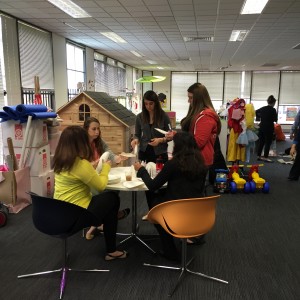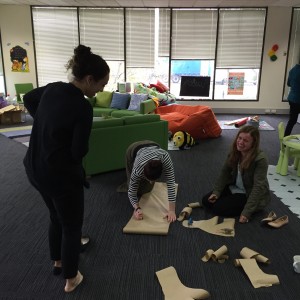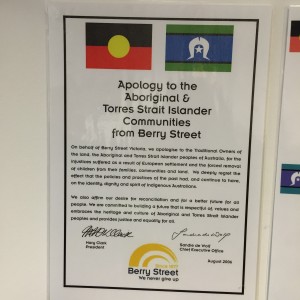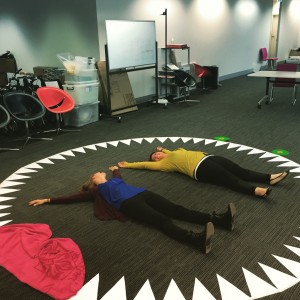
We began the week at Berry Street – an organization that runs many programs aimed at children and families going through difficult times. We got to help set up and run a dino-themed play group for some cute little kiddos 5 and under. We think we had as much fun as the kids! We participated in playing games with the kids, singing songs, and painting with them! It was interesting to see the way in which a Theraplay (TM) group works and it was amazing to be able to get hands on experience and to interact with the children and their parents/carers. There are some things that one make think is normal for parents to do such as sing songs with their kids and being eye level when talking to the kids that sometimes aren’t as natural for the carers to do and Theraplay helps develop these skills. Additionally, it is quite interesting that Australia pays attention to such small details, such as the words they use. “Carer” is used, rather than foster parent, because the term “parent” can be quite confusing and could potentially add to a child’s trauma, particularly because foster placements are sometimes for very brief periods/don’t work out. We also got to have a roundtable discussion with other staff at Berry Street who work on everything from homeless youth to family violence programs. It was great to hear from each of the team leaders and learn about the ways they run each of their programs. Through our conversation, it was evident that each member is passionate and dedicated in making a difference in the at-risk child and family population.
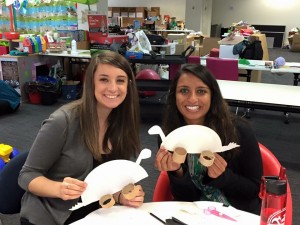
Emily and Anna with the finished products: stegosaurus! The kids painted and added decorations to each of these.
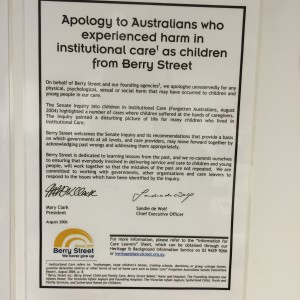
One of the most astonishing things about Australia has been the fact that every single of the 9 agencies we visited acknowledged in writing – and usually orally – the traditional aboriginal owners of the land. In addition, I think almost all of them had programming aimed at aboriginal and Torres Strait Islander communities. The first thing I noticed upon entering Berry Street was their heartfelt apology that was hanging up in the lobby. It went as far as to apologize for any contribution the organization made to the Stolen Generations.
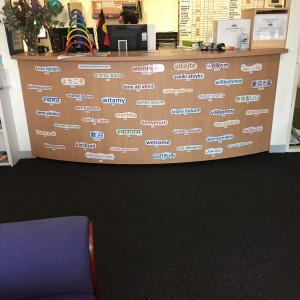
We also visited the Bouverie Centre this week. This organization mainly focuses on family therapy practice and is the leader in family therapy practice in Australia. We enjoyed the fact that they had all different languages posted on their front desk and it even said, “Don’t see your language here? Let us know!” How inclusive?!
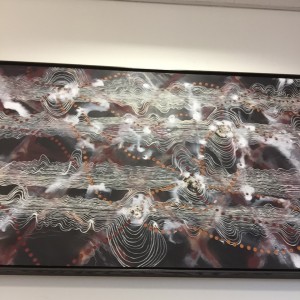
Bouverie Centre aboriginal artwork by an aboriginal employee. We got a bit of a background on the piece – the dots stand for the various aboriginal nations while the lines represent the relationships which were formed and it was simply beautiful!

It was really cool that we got to meet the head honcho at the Bouverie Centre, as not many top dogs have time for a student group like us. I even noticed his office was the same size as everyone else’s – so he seems to be one of THOSE kind of leaders 🙂 Their office was really interesting because it was purposefully made in a circle formation, which I think is really cohesive and makes for a collaborative and open workplace. We were able to walk around and see the observation rooms and talk to staff along the way. One really interesting thing he explained to us are their teams of professionals that will actually debrief about a family’s therapy session afterward while the family looks and listens from the observation side of the room. I find this to be a really amazing way to increase knowledge and power of clients. We also got a really great introduction to single session therapy, which I was wholly unfamiliar with. Did you know that the majority of therapy attenders will only come to one session and that a majority of them state they got something out of and were satisfied after just 1? Me neither. Interestingly enough, dietitians use this practice without the title of single session therapy. The format of the session was extremely similar to what a dietitian would do in an in-patient setting since most of the time they only get about 30 minutes with the patient so they have to make those 30 minutes count and get as much information from the session as possible! Although mental health counseling is different from nutritional counseling, I saw some overlap between them. In each case, the practitioner has to decipher which stage of change the patient is in and find the internal motivation behind them and build upon that. Bouverie has studied this and modeled their way of doing things around it, by making the most of the first session and ensuring that they are addressing what the client wants out of it. Family Therapy practice is vital for every profession since it is hard to make lifestyle changes without a supportive network for the client/patient. We were lucky enough to have Dr. Young walk us through an analysis of a real case example, which was helpful.

Dr. Young taking us through a real case-study with assistance by Dr. Cash. In this picture, he is taking us through the genomap.
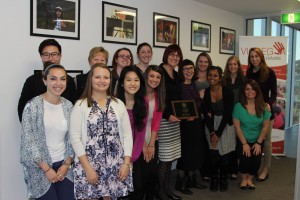
Visiting with VICSEG – an organization that works for migrant and refugee families. 90% of what they do is training, to make other organizations more culturally competent in working with their target population, as well as create play groups and mentoring programs run by longer standing refugees and migrants for newer refugees and migrants from their country of origin. They are not a social service program provider, but create capacity-building and community outreach programs. This was one of my favorite organizations as they are one who deals with social change up front and center. They have great programs to help refugees including a healthy eating program where they teach adults and children what nutritious foods are, how to pick them, and ways they can incorporate them into their every day meals. I also valued that they train doctors on cultural competency since a persons culture influences the healthcare they receive. This conservation made me think about a book I read called The Spirit Catches You and You Fall Down by Anne Fadiman. This book analyzes the interactions of a refugee family and hospital in America and the role culture plays in health-care practice. It is a really moving book that depicts the importance of communication and an inter-disciplinary health-care team. Definitely worth the read! Pictured in this photograph are Janet and Suzie who were extremely passionate, knowledgable, and had the same amount of energy when we got there as when we left! We watched a video about a migrant family that hit close to home for many in our group – who themselves have migrant and refugee family histories. As someone who has parents that were born and grew up in India, this movie really struck me. My parents have sacrificed a lot for me and taught me that knowledge is power and that I can do/ be anything I want as long as I work hard for it and study diligently. They made a life for themselves in America without having a supportive network or any immediate family and they did it mainly so my sister and I could receive a good education and to help with my sister’s health. Although I do not live in India, I still have a strong sense of culture due to the tight-knit Indian community we have in Dublin and the traditions and food that my family celebrates and eats. We all got emotional, but that’s what us social workers do, right?!
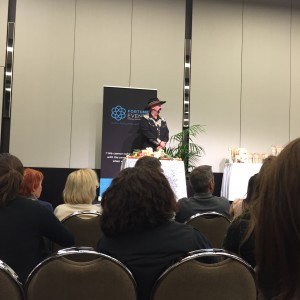
We attended a talk given by Don Tolman on Wednesday evening with our tour guide from over the weekend – Katie. The reviews were mixed – most of tbe group hated it (lol). I (Cassie) didn’t find his overall point to be too controversial, but I definitely think he could have gone about it in a different way and left parts out. His main point was that we should be eating whole foods like fruits and vegetables, getting fresh air and sun, doing what we are passionate about, and engaging in non-toxic relationships. All pretty basic stuff, with a lot of fluff mixed in. After hearing about this guy, I (Anna) was interested to what Don Tolman had to say since I am in the medical dietetics program and am on the track on becoming a registered dietitian after graduation. Unfortunately, Don Tolman, is NOT someone people should listen to and I really thought the talk was a waste of time. I think my professor put it in terms the best way: It is hard to study a topic which is everyone else’s hobby. Nutrition is a subject that is extremely subjective and constantly changing and most people have an opinion about it. I just do not agree when a person claims to have knowledge on a topic and people follow their advice blindly! Don Tolman did not have any evidence-based research behind any of his statistics and had some very questionable facts that he shared. Although the jist of some of his presentation was good (eat whole fruits and vegetables, get sun, drink water), these are the same things a credited professional such as a registered dietitian would tell you and they use evidence-based practice! I also did not like how he bashed doctors and told people not to visit them. I just hope people do not listen to him without doing their own research first!
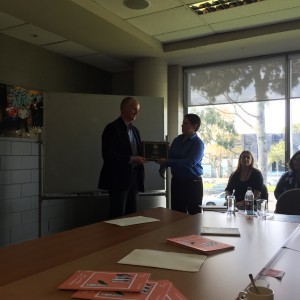
Our final agency visit was to Anglicare, where we learned a lot about Victoria’s largest provider of foster care. David, the policy person, gave us a really great overview of the Victorian child welfare system and he seemed to be really knowledgeable on a host of issues, including drug policy, which I (Cassie) appreciated. We also learned about this amazing program they run called TEACHaR, which aims to fill the gaps in schooling experienced by children in and out of care. They employ licensed teachers and we got to hear from an amazing employee, Jo, as well as the program director. It is a very progressive organization that seems to be working very well due to the successful results. They track about 40 kids and ensure that they are getting the individualized attention one who has missed or transferred schools quite a bit would need. I believe we sorely need a program like this to be implemented in the States.
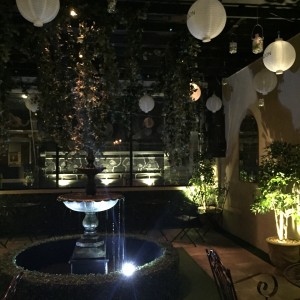
[SAD FACE] Thursday evening we had our final group dinner at a really cool restaurant called CiderHouse. This picture is of the beautiful lounge they have upstairs. The food was amazing and we had a good time chatting with the owner. This experience in Australia was life-changing. We learned a lot, met amazing people, visited beautiful places, and I would encourage EVERY Ohio State student to study abroad!!
